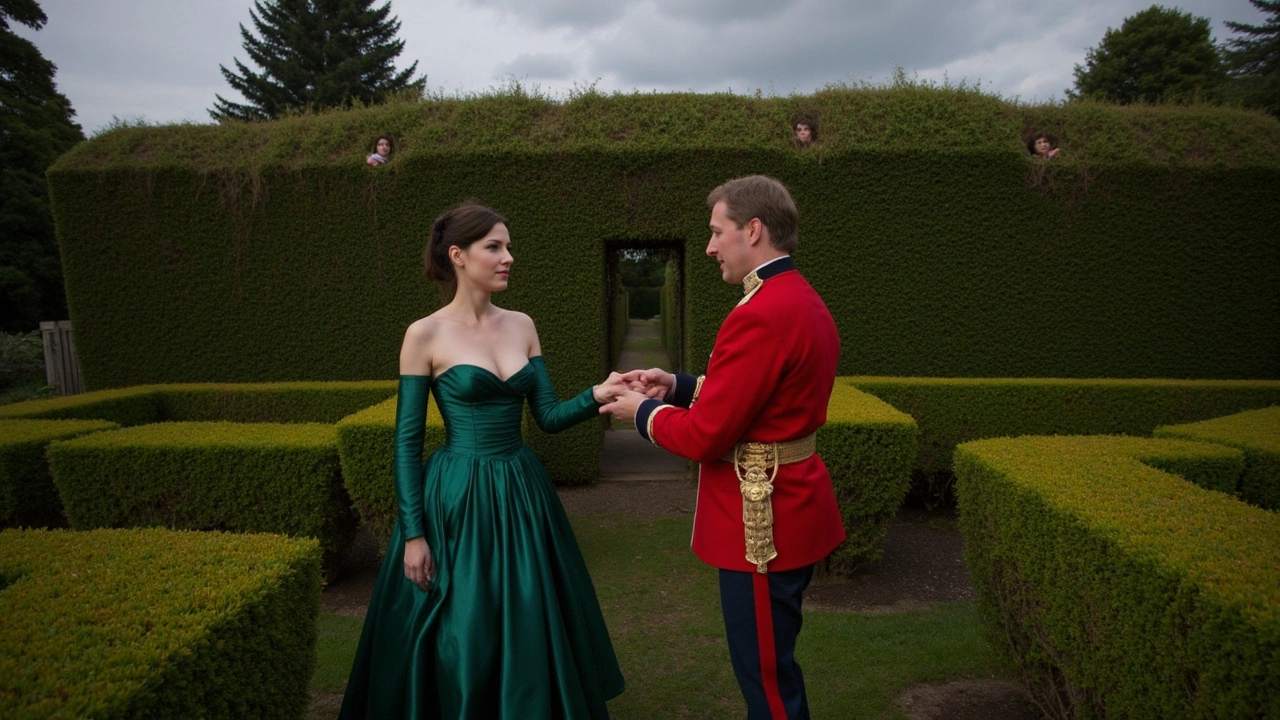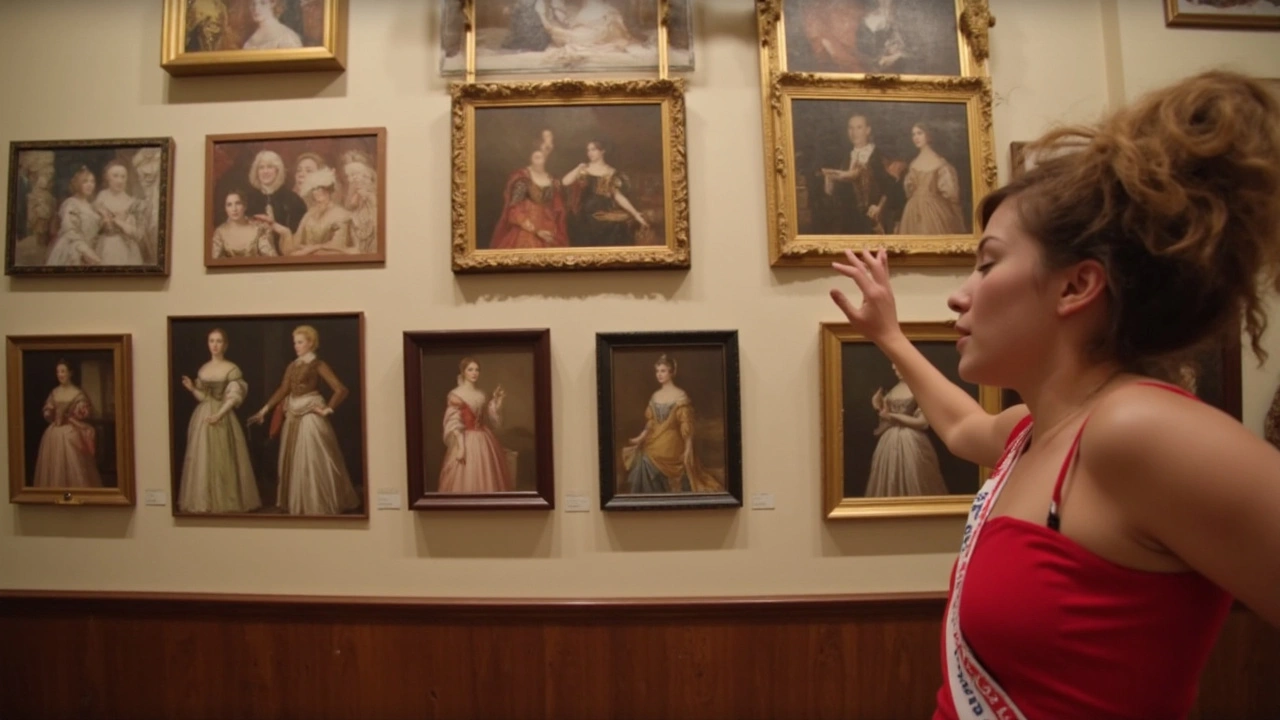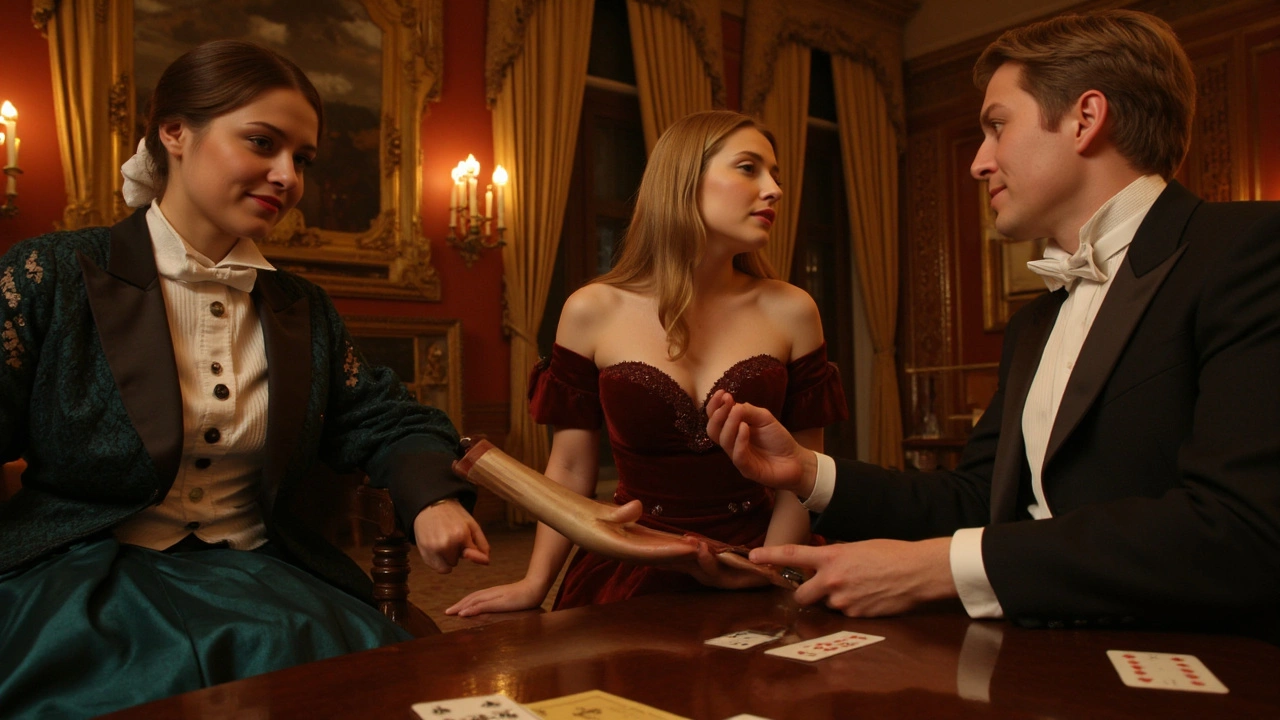Most people think of courtesans as glamorous companions, but there’s way more beneath the surface. These women didn’t just sit around looking pretty—they were savvy, strategic, and knew exactly how to use their position to influence powerful decisions.
If you picture a royal court buzzing with gossip, deals, and secret alliances, you’re on the right track. Courtesans had something rare: direct access to kings, generals, diplomats, and wealthy elites. They overheard things most couldn’t dream of and, believe it or not, sometimes carried messages, spread rumors, or even blackmailed their way into shaping political outcomes.
Ever wonder how certain secrets ended up in the wrong hands or why a ruler suddenly changed their mind overnight? Courtesans often played a silent but critical part. In places like Renaissance Italy or Louis XV’s France, courtesans acted as informal advisors, passing tips and nudging politics without ever holding an official title. Pretty wild, right?
- Courtesans: The Quick Take
- What Courtesans Did Behind the Scenes
- Famous Courtesans and Their Tactics
- Spotting Political Intrigue in History
- FAQs About Courtesan Influence
Courtesans: The Quick Take
Court politics rarely kept its secrets for long—thanks in large part to courtesans. Let’s get something straight right away: being a courtesan wasn’t just about luxury and gossip. These women knew how to get close to the most powerful people of their time and get results.
The word “courtesan” comes from the Italian word “cortigiana” meaning a woman of the court. They weren’t just any entertainers; many were highly educated, spoke several languages, and learned the art of reading a room. The strongest courtesans often came from the middle or upper classes before finding their way into high society. Their real skill? Influence.
During the Renaissance, high-profile courtesans in Venice had actual contracts—with set payments and even health check agreements! In 18th-century France, “official mistresses” could make or break a politician with a single word. In some Indian courts, powerful tawaifs trained in music, poetry, and politics, acted as advisors behind closed doors. Here’s a quick look at the big picture:
| Era | Notable Courtesan | Location | Influence/Role |
|---|---|---|---|
| 1500s | Veronica Franco | Venice | Advisor, poet, social mediator |
| 1700s | Madame de Pompadour | France | Political influencer, cultural trendsetter |
| 1800s | Mata Hari | France/Netherlands | Spy, alleged political messenger |
Ever wonder how decisions behind closed doors could suddenly shake an entire country? This is where the courtesan stepped in. You’ll often spot them right where they could have the most impact: at royal feasts, salons, and private negotiations. If someone needed info or leverage, a courtesan knew exactly where to find it.
Bottom line: courtesans weren’t just along for the ride; they helped steer the carriage. That’s why studying their role makes political history way more interesting—and, honestly, way more real.
What Courtesans Did Behind the Scenes
Courtesans weren’t just about glitz and glamor—they worked the backstage of politics like expert players. Instead of just mingling at parties, they used their relationships with powerful men to unlock doors most people never even knew existed. Some of history’s most notorious courtesans, like Madame de Pompadour in France, played direct roles in shaping royal decisions, nudging France into alliances, or pushing for new policies.
Behind the lavish appearances, a lot was happening:
- Influence over policymakers: Courtesans often gained the trust of kings and nobles by offering companionship, but that trust quickly turned into real leverage. They’d listen to secrets, suggest new ideas, and sometimes even sway big choices about war or money.
- Intelligence gathering: These women picked up info during pillow talk or social events. They memorized key details—names, dates, deals—and sometimes passed them on to rival factions. In a way, they acted like the spies of their time.
- Networking for power: Courtesans weren’t just solo players. They built networks of contacts, connecting people who could help their cause or their allies' causes. This sort of behind-the-scenes matchmaking changed who got close to the people in charge.
- Breaking scandals: Several major political scandals started with a loose word whispered by a courtesan. For example, during the reign of Catherine the Great in Russia, rivals paid courtesans to plant rumors, trigger scandals, or sabotage relationships in court.
It wasn’t all fun and games. Courtesans walked a risky tightrope. Trusting the wrong person or leaking the wrong secret could mean exile—or worse. But for those who played their cards right, the reward wasn’t just money or fame, but a real hand in the direction of their nation’s future. Now, when you hear about a ruler “falling under the influence” of a mysterious woman, don’t just shrug it off—think of what was really going on behind closed doors.

Famous Courtesans and Their Tactics
Courtesans pulled off some of the boldest moves in political history, but it didn’t happen by accident. These women knew how to listen, what to say, and when to act. Let’s check out some real stories and practical tactics that made the biggest names in this world legendary.
Courtesan roles weren’t just for show. Consider Madame de Pompadour, who became King Louis XV’s chief advisor as well as his favorite. She guided major policies, influenced France’s alliances, and even had a say in art and culture. She was so talented at blending charm with brains that several ministers envied her access.
Then you’ve got Veronica Franco from Venice. She wasn’t just famous for her beauty—she wrote poetry, debated scholars, and hosted salons where politicians traded secrets. She used her relationships to protect herself and her city. Franco even blackmailed powerful patrons with letters she saved, proving knowledge really is power.
Moving to England, Nell Gwyn started as an orange seller, then became the mistress of King Charles II. She swayed him to favor certain nobles and gained public sympathy with her quick wit. Contemporaries said even Charles’s advisors were sometimes annoyed how much she could get the king to change his mind over supper.
What worked for them? Here’s a quick breakdown:
- Listening and Gathering Intel: Courtesans picked up more gossip than anyone else, then used those tidbits when the time was right.
- Hosting Salons or Gatherings: By having politicians and artists over, they became a hub for information (and negotiations).
- Record-Keeping: Letters, poems, or even receipts turned into leverage later, especially if a patron got too bold.
- Selective Loyalty: They’d back leaders who offered protection or more benefits, switching sides only when it was safe or necessary.
- Public Image: Some, like Nell Gwyn, played up their likability so the public would root for them during rougher times.
Spotting patterns? Most moves came from being in the right place, with a cool head, and knowing how to turn a conversation in their favor.
| Name | Era/Place | Main Tactic | Political Impact |
|---|---|---|---|
| Madame de Pompadour | 18th-Century France | Advising King, influencing policy | Changed France’s alliances, shaped arts |
| Veronica Franco | 16th-Century Venice | Blackmail, salons, cultural sway | Protected city, influenced decisions |
| Nell Gwyn | 17th-Century England | Public relations, loyalty to king | Swayed royal favor, shaped court dynamics |
| Mata Hari | Early 20th-Century Europe | Espionage, seduction | Passed secrets during World War I |
So, the next time you hear about power struggles behind the scenes, remember that sometimes the biggest shake-ups started with someone who seemed to have no official power at all.
Spotting Political Intrigue in History
If you want to see the real impact of courtesans in history, you have to know where to look. Their moves are all over the records—sometimes loud, other times hiding right between the lines. Here’s how you can spot the fingerprints of intrigue tied back to these power players.
First off, check out stories around big historical shifts. Madame de Pompadour wasn’t just King Louis XV’s companion—she basically set the tone for French politics during his reign. She promoted peace treaties and hand-picked government officials. When someone with that kind of access gets involved, you’ll start seeing some head-turning decisions from the top.
There’s Nell Gwyn, who went from orange seller to the favorite of King Charles II in England. She wasn’t just popular for her wit; she had a big role in boosting the king’s public image and calming down political tension. These are the kinds of details that only pop up when you read between the lines in old letters and diaries.
Want more signals? Look at frequent visitors to the royal rooms or see who pops up in ambassador reports. If a person without a fancy title keeps showing up at diplomatic meetings, odds are, they’re doing more than just hanging around—probably passing messages or making deals.
- Watch for sudden policy changes that happen right after a leaders’ new favorite appears.
- Study gossip columns or court records from the past—they loved to talk about who was suddenly "in favor."
- Keep an eye out for times when rulers trusted non-nobles with big secrets or power moves.
Here’s a quick table showing just how influential these well-placed individuals were at certain points:
| Courtesan Name | Influenced Leader | Major Political Move | Estimated Impact |
|---|---|---|---|
| Madame de Pompadour | Louis XV of France | Peace of Aix-la-Chapelle | Helped shape French foreign policy, recommended key ministers |
| Nell Gwyn | Charles II of England | Public outreach, royal image boost | Mollified public tensions, influenced king’s public stance |
| Veronica Franco | Venetian senate and nobles | Diplomatic mediation during invasions | Used connections to ease political negotiations |
What you’ll notice is that these figures had direct lines to power—sometimes more than military commanders or official advisors. When you read history or watch period dramas, if you see someone without a military rank having the ear of a ruler, that’s your clue to dig deeper. The courtesan wasn’t just a background character; she was often the real dealmaker in the room.

FAQs About Courtesan Influence
When you start digging into the political world of courtesan history, questions come up fast. Let’s clear up some of the big ones.
Did courtesans really have political power?
Absolutely, though it looked different than the power of men in charge. Courtesans influenced by sharing advice, leaking secrets, or acting as the go-between for rival groups. For example, Madame de Pompadour was one of King Louis XV’s closest advisors in France, and there’s plenty of recorded evidence that she pushed certain policies and even helped decide who the king trusted.
How did they actually change political events?
Clever use of what they knew. They picked up inside info at the court or elite parties, then used it to steer conversations or relationships. Sometimes, they’d pass intelligence to foreign diplomats. In Renaissance Venice, the famed courtesan Veronica Franco was even tapped to help with delicate diplomacy because she had the right contacts.
Was it all about romance or was there real strategy?
Romance played a role, but it was often just a tool. For many courtesans, relationships were a way to build networks. They’d give gifts, call in favors, and even broker peace between enemies. Some even pooled resources with other courtesans to protect each other from political fallout—think of it as early networking or alliance-building.
Were men ever courtesans with political roles?
Male courtesans existed, but they were far less common and rarely reached the same level of influence in European courts. In some Asian cultures, male entertainers did move in political circles, but in Europe, it was typically women who had this unique power mix of charm, wit, and access.
Do we see influence like this today?
Modern politics doesn’t have courtesans in the classic sense, but elements like insider access and influence through social networks? That part’s alive and kicking. Think of lobbyists, close advisors, or even influencers—behind the scenes, some things really haven’t changed that much.



